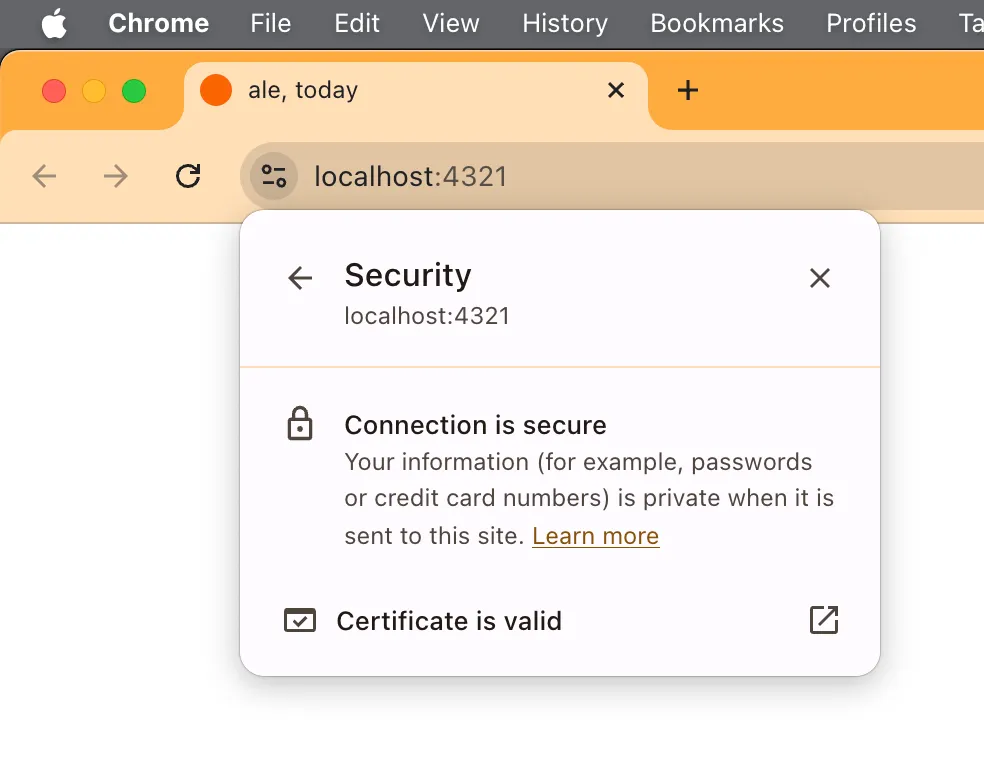Serving local Astro projects with HTTPS
This post is dedicated to Yak Shaving, the noble art of completing 75 side quests before doing the thing you actually wanted to get done.
Today, I wanted to add a simple feature to one of my side projects: the ability to copy a URL to the user’s clipboard by clicking on a button.
That’s apparently easy to implement using the Clipboard API, but as it turns out, it doesn’t work when you’re serving your site via HTTP. They say it’s for “security reasons” and I don’t possess enough knowledge about the topic to start a discussion with the docs.
I could deploy my work in progress to a production site that uses HTTPS, like an animal, but that’s not how I roll, so I decided to complicate my life and try to enable SSL on my local development environment.
What followed was a tour of many websites, blogs, Stack Overflow pages, and GitHub issues discussions. I want to add some noise to the mix save you the trouble if you find yourself in a similar predicament, so here’s what I learnt, condensed and summarized.
For the record, I’m using Astro 5.7, but this should work for pretty much anything that uses Vite.
Step 1: generating your certificates
To serve your development site via HTTPS, you’ll need a pair of certificates. To generate them, we’ll use mkcert to generate them for us:
cd your_astro_project
brew install mkcert
mkcert -install # This will ask for your admin password a few times
mkcert localhostThat will create a couple of files in your project’s root: localhost.pem and localhost-key.pem.
You may want to add those two files to your
.gitignore, just in case.
Step 2: tell Astro to use the certificates
To tell Astro to use our shiny certificates, add this to astro.config.mjs:
import { defineConfig } from 'astro/config'
export default defineConfig({
vite: {
server: {
https: {
key: './localhost-key.pem',
cert: './localhost.pem',
},
},
},
})Step 3: profit
We can now run astro dev to start our development server, and it should automatically serve our content using SSL:
🍊 npm start
> ale.today@1.0.0 start
> astro dev
21:52:12 [types] Generated 0ms
21:52:12 [content] Syncing content
21:52:12 [content] Synced content
astro v5.7.10 ready in 498 ms
┃ Local https://localhost:4321/
┃ Network use --host to expose
21:52:12 watching for file changes...
Now we’re ready for more yak shaving coding!
P.S: before you ask, yes, I finally got my clipboard code working with HTTPS 😎